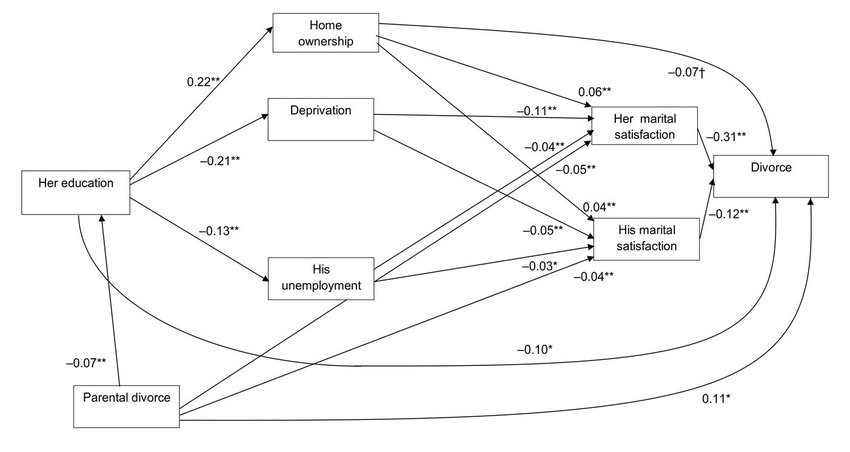Marriage is undoubtedly a sacred relationship among couple, but sometimes it gets uncomfortable to stay in this partnership. Here comes divorce and more decently, ‘divorce mediation’.

Its a collaborative process of divorce where a couple seeking an efficient, neutral and fair process. The mediator is a third party, neutral person who can be a friend, family or a professional as well.
Table of Contents
Let’s know more about divorce mediation and its role in couple’s most crucial decision.
What is Divorce Mediation?
Divorce Mediation is a collaborative process of getting divorce. It takes place among marital partners with the help of a third person, called a mediator.
They either belong to a friend circle, family, or any outsider analyst who helps to resolve divorce cases smoothly.

Why is there a need to find a divorce mediator?
There is the following need for couples to find divorce mediators;
- To promote resolutions to any marital cases
- To strengthen the relationship before and after divorce
- To have affordable fees for attorney and court processes
- To have a schedule of sessions rather than delayed dates at court
- To discuss the future with the parenting aspects
- To pursue private and open communication
Who Introduced it First?
Diverse volunteers brought different and convenient approaches to the married couple for their divorce. It began in the mid-20th Century.
- John Haynes, the renowned lawyer and mediator, showed his interest in 1970 in the United States. He developed the structure of divorce mediation programs to represent his law and psychological perspectives in California.
- C. Hugh Friedman is known as a mediator and an attorney. In 1970, He co-founded the Center of Mediation Law in New York. He routed another way of divorce litigation.
- Gary Friedman, a lawyer and mediator, co-founded the Center of Mediation Law in New York with C. Hugh Friedman in 1970. He shaped and practiced divorce mediation. He worked on Transformative Mediation the most. He promoted open communication and convenient dialogue-delivery among the relationships to resolve the problem by understanding it.
- O. J. Coogler, a family counselor and a therapist, worked on psychological principles and counseling in divorce mediation. In 1970, He founded the Family Mediation Institute in California. He developed collaborative and therapeutic approaches in divorce mediation.
Historical Overview
The process begins a long time ago as it has ancient origins as well. Divorce mediation has been helping the couples since ages but with less popularity. Let’s find out the origins;
Ancient Origins
Ancient cultures and civilizations had different conflicts, disputes, or crises. People used to solve matters by discussing them with senior or experienced members of society. There were no established documentative courts.
- Mesopotamia, Egypt, and Greece provided the mediators to resolve marital issues and facilitate the clients reasonably. They respected other parties who helped clients to meet agreements affordably.
Pre-Modern Era
The divorce mediation movement was involved in legal and religious contexts. People saw the declaration of mediation processes appropriately.
- In England, courts hired mediated employees. They did it to resolve marital cases under canon law.
- Jewish and Islamic law presents the authority to mediators. So, they can make decisions in suitable conditions for couples to resolve, reconcile, or proceed with separation during the marital journey.
Mid-20th Century Era
Divorce mediation began to circulate with modern strategies in the mid-20th Century. The importance of divorce mediation rose in social and cultural aspects. The development of psychology brought a new movement towards marital dispute resolution.
- One type of divorce is a No-fault divorce in which couples attempt the divorce process without proving fault for each other. This No-fault Law rose in the 1969s and 1970s. This law brought adversarial aspects towards resolution.
- Pioneers such as John Hayes, C. Hugh Friedman, and Gary Friedman worked on divorce mediation.
Modern Era
In the 21st Century, for marital problems and their resolution, people pursued healthy approaches. Divorce mediators helped marital affairs extraordinarily in many countries.
- Divorce mediation became an effective recommendation. It requires fewer crises than litigation.
- It helps to restrain the problems.
- It shapes the efforts and practices.
- It adapts to the changing of social and cultural norms.
- It brought evolution to mediation services and professional standards.
- It brought legal and advanced methods to resolve marital conflicts or disputes through theory or practice.
Comparison of Divorce and Mediation
Divorce is to solve the problems of marital couples legally through the court system. The judge gives limited options to the spouses according to the law of justice and spousal issues.
The cost of divorce is much higher as it costs twenty-thousand dollars approximately and other expenses to bring the possibility of an adversarial environment. The party depends on judges and it might take months or years.
Divorce mediation is a quick process in which the mediator helps the couple to make agreements outside the court system. It costs less expense $1,000 to $3,000 during divorces.
It is a more efficient collaboration for the clients as they make their own decisions by avoiding the mess and bringing peace. They improve cooperation in matters, beliefs, thoughts, interests, needs, dreams, and goals for the child. This is crucial because divorce affect children the most.

Mediation and Meditation
Mediation is similar to Meditation. It aims for a peaceful and ordered life to avoid crises, conflicts, or disputes. Historically, the meditative process took place to resolve the cases of couples without profound litigations.
Meditation relates the internal and external pathways to clear the physical and mental phenomena. Such as emotions, consciousness, driving needs, and whatnot. The psychological needs get recognition, and people try to secure it.
Divorce Mediation Statistics
- Usual rate: Divorce Mediation rated 30 % to 40% of divorces in the United States.
- Prosperity Rate: There was 60% to 80% result in the partial or complete agreements of Divorce Mediation.
- Relieved Rate: The couples showed 80% to 90% satisfaction through divorce mediation.
These two images reflect the report of divorce mediation statistics;


Global Views
Divorce mediation has thousands of views from around the world. Some major views of them are given below;
- United States: People go for divorce mediation widely in different states and regions.
- Canada: In most states of Canada, Ontario, or British Columbia, it was mandatory to solve marital cases through the courts.
- United Kingdom: People focus on resolving marital disputes or conflicts. Mediation became popular and many cases occur in courts with less cost-efficient and adversarial choices.
- Australia: Mediation has much importance. People opted for the right decisions to reconcile or break marital relationships. Federal Circuit Court of Australia promotes divorce mediation widely in their region.
- Pakistan: Divorce mediation often takes place in Pakistan. Mostly, couples reconcile their relationships with the help of third parties. Sometimes, they proceed with additional mediation to meet their desires.
- Japan and France: Both countries have less mediation development but focusing private practices.
- Italy and Germany: These countries have slower gains toward mediation due to cultural and legal aspects.
- Maldives: In 2022, the minimum rate of divorces is 5.5 in Maldives in the report of Divorce site.
- Other countries: The rate of divorces in Kazakhstan is 4.6, Russia is 4.4, Belarus is 3.7, China is 3.2, Ukraine is at 3.1, and Nigeria is at 2.9 in 2022.
Conclusion
Divorce Mediation reflects savvy strategies to resolve marital cases in different forms. It brings quick resolution and provides less expenses.
Mediation relates to psychological aspects in some matters. It deals with pre-divorce and post-divorce issues and helps in adjustment. The mediators help couples to meet their respective goals and acknowledge patterns and methods towards resolution.
Let’s conclude that the pillars, benefits, and values of this process keeps a similar importance by providing a balanced solution.